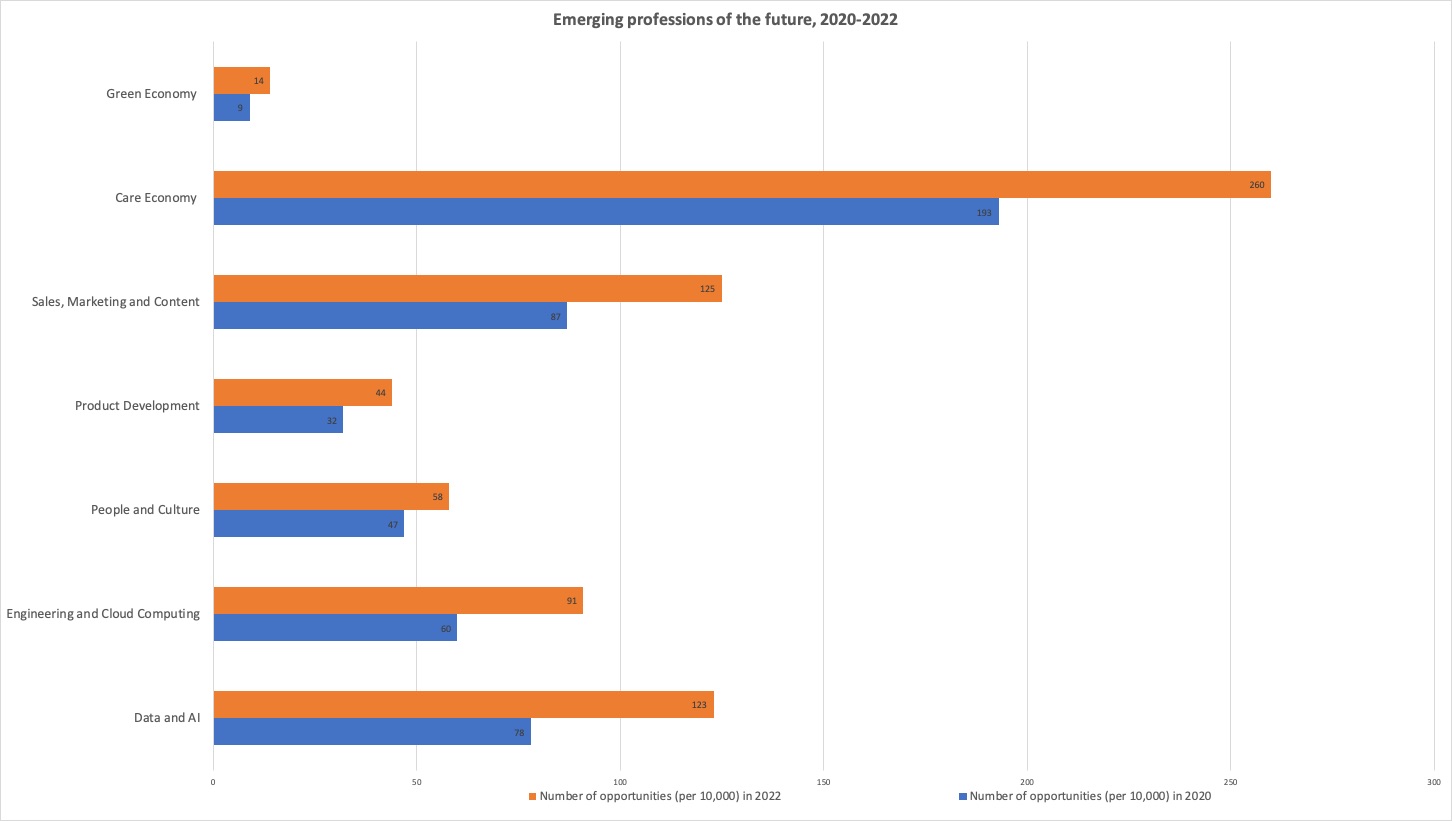
Skills and job trends now and into the future
We find ourselves in the aftermath of the first wave of the COVID-19 pandemic which wreaked havoc on the Australian economy. Although the unemployment rate peaked in July 2020, job security is still at an all-time low.
We’ve compiled a list of current job growth areas and skills you might need to prepare for the changing work landscape.
Current in demand jobs
JobOutlook has compiled a list of high growth careers where employment has grown strongly in recent years and is projected to continue growing. These are:
- Aged and Disabled Carers
- Registered Nurses
- Child Carers
- Welfare Support Workers
- Software and Applications Programmers
- Management and Organisation Analysts
- Accountants
- Primary School Teachers
- Secondary School Teachers
- Education Aides
Postgraduate qualifications in Nursing, Finance and Accounting, IT and Cyber Security, Business and Teaching could help you enter many of these growing sectors.
Jobs and skills of the future
A report from Salesforce shows that 59% of hiring managers believe that Artificial Intelligence will impact the types of skills their companies need, and that their workers will more than likely need to update their skills, not just once but many times through their careers.
Workers will more than likely need to update their skills, not just once but many times through their careers."
Hard Skills
The "Jobs of Tomorrow" report released by the World Economic Forum outlines a number of ‘emerging jobs clusters’. These are basically emerging jobs that will likely show significant growth in the future. Emerging jobs clusters can be found in fields such as sales, marketing and content, product development, people and culture, engineering and cloud computing, data and AI, the Green Economy and the Care Economy.
Emerging jobs of the future, as analysed in the report, are projected to account for 6.1 million opportunities globally over the next two years.
Source: Data from World Economic Forum Jobs of Tomorrow 2020 Report
The above chart shows how the ‘Care Economy’ cluster is the most in-demand, followed by Sales, Marketing and Content and Data and AI. However, Data and AI, Green Economy, and Engineering and Cloud Computing job clusters are tipped to grow the fastest between 2020 and 2022, with annual growth rates of 41%, 35% and 34%, respectively.
Soft Skills
Although building technical skills is important, it is important for employers and team leaders to find ways to instil soft skills in employees, such as collaboration and teamwork skills, digital fitness, and a curiosity to learn.
Bernard Marr, a contributor for Forbes.com, sets out a useful list of skills that will be in high demand.
These are:
- Creativity
- Emotional intelligence
- Analytical (critical) thinking
- Active learning with a growth mindset
- Judgement and decision making
- Interpersonal communication skills
- Leadership skills
- Diversity and cultural intelligence
- Technology skills
- Embracing change
Further to this, a report by McKinsey Global Institute revealed four key skills areas that will be needed in the future post COVID-19:
- Ability to operate at pace in a fully digital environment
- Cognitive skills for redesign and innovation
- Social and emotional skills to ensure effective collaboration, management, and self-expression
- Adaptability and resilience to thrive during COVID-19 aftershocks
This focus on soft skills is confirmed by Organisational Development Manager from nib Health Funds, Jessica Redman, who in discussing the disruption of new innovations and new ways of working, highlights a number of key employee qualities that will help businesses thrive. “What will remain at the core of preparing for this ‘new world’ is developing a learning mindset and refining critical thinking and problem-solving skills,” Redman says.
It is clear that the jobs and skills that we know today will be different in two, five and 10 years from now. A great way to ensure that your skills are relevant today and into the future is to undertake postgraduate study or further training.
Postgraduate study helped Jessica to develop discipline and find confidence in her capabilities. “It provides the platform to develop and refine critical thinking and research skills, project management, problem solving, and interpersonal skills. These are the skills I see my team apply on the job every day,” she says.
Postgraduate study, such as what is offered at the University of Newcastle, is a great way to advance your career, get all the latest industry insights and expand your network locally and internationally. It’s easy to make it work around your lifestyle as well, with face-to-face, online and mixed modes of delivery available for postgrad students. Now is the time to do what’s important to you.
The University of Newcastle acknowledges the traditional custodians of the lands within our footprint areas: Awabakal, Darkinjung, Biripai, Worimi, Wonnarua, and Eora Nations. We also pay respect to the wisdom of our Elders past and present.
